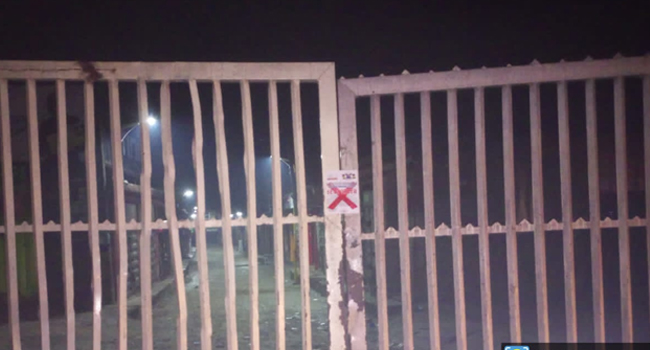By Halimah Olamide
The Lagos state government on Saturday said the closure of the popular Alaba International Market was not a politically motivated action. The government stated this just as the market, popularly known for electronic gadgets was reopened.
The government said the market and others around the Trade Fair complex were shut down due to what it called “improper waste disposal and other environmental infractions.”
Commissioner for the Environment and Water Resources, Mr. Tokunbo Wahab, said the markets were reopened after addressing most of the environmental issues, adding that the closure was not politically motivated but rather a step towards ensuring a clean and healthy environment around the business facilities.
He said, “The decision to reopen the markets follows a rigorous assessment and implementation of stringent environmental standards. These standards were set to guarantee that businesses in the state operate in a manner that is not detrimental to the environment and the well-being of people”.
READ ALSO:
Tinubu Celebrates Oba of Lagos, Rilwan Akiolu at 80
19 Popular Bars, Lounges, Restaurants Shut in Lagos Over Safety Concerns
Alaba Lawson, Prominent Iyalode Egba Dies at 72
“I want to state emphatically that the closure of those markets has no ethnic or political motives behind it, as it was done to ensure cleanliness and environmental sustainability for the good of all residents”, he added.
Wahab reiterated the significance of maintaining a harmonious balance between commerce and environmental health, stating that the enforcement action was a continuous one, as the government would not shy away from sealing any market or corporate organisation found wanting.
The Managing Director/CEO of the Lagos Waste Management Authority (LAWMA), Dr. Muyiwa Gbadegesin said the agency worked closely with the markets’ stakeholders to ensure that they implemented necessary changes to meet required environmental standards, adding that it was important for markets to operate in a manner that was not only economically viable but also environmentally responsible.
His words: “We have standards that each market in the state has to comply with, to make our business environment clean and healthy for both buyers and sellers.
These include but are not limited to proper containerisation of waste within the markets; procurement of double dino bins and placement in designated areas within the markets; engagement of bin keepers to monitor and sanitise the bins and their surroundings; zero tolerance for open burning of waste and zero tolerance for dumping of waste in the drainage channels.
Others are the engagement of market policing personnel to monitor the sanitation of the market, setbacks, medians and its surroundings to avoid indiscriminate dumping and apprehend violators; eradication of street trading on the road and median setbacks, which obstructs the free flow of traffic and full payment of all outstanding tariffs.
While stressing that any violation will attract not only a penalty but subsequent closure, Gbadegesin urged residents and business owners to show commitment towards environmental sustainability, through proper waste disposal and adherence to environmental laws of the state, to prevent such closure that could negatively impact business activities.


